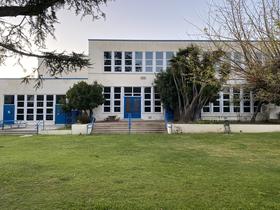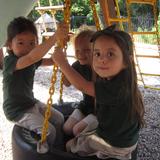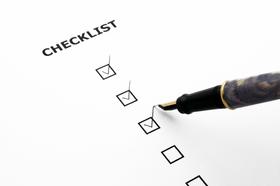RLA is a one-of-its-kind teaching laboratory school for children with dyslexia ages 5-9. Our goal is to teach children how to read, write, and spell successfully so they are able to integrate back into mainstream schools within a few years. Students participate in a full day comprehensive curriculum, centered around evidence-based educational practices.
Special emphasis is placed on STEAM and the arts.
RLA`s class sizes are small, offering a one-to-four instructional ratio in our literacy classes.
Quick Stats (2024-25)
- Top Ranked KS School
- School Type: School with Special Program Emphasis
- Grades: Kindergarten-5
- Enrollment: 70 students
- Yearly Tuition: $11,800
- Acceptance rate: 80%
- Average class size: 4 students
- Application Deadline: Aug. 1
- Source: Verified school update
Top Rankings
Rolph Literacy Academy ranks among the top 20% of private schools in Kansas for:
Category
Attribute
Acceptance Rate
School Overview
School Type
Religious Affiliation
Grades Offered
Grades Kindergarten-5
ADD/ADHD Support
Yes
Learning Difference Programs
Yes
Learning Programs Supported
dyslexia, reading difficulties
Year Founded
2014
Summer School Offered
Yes
School Calendar
Student Body
Total Students
70 students
Student Body Type
Co-ed
% Students of Color
91%
State avg.: 25%
Academics and Faculty
Total Classroom Teachers
10 teachers
Student : Teacher Ratio
7:1
National avg.: 13:1
Average Class Size
4 students
Classroom Dress Code
Casual
Tuition and Acceptance Rate
Admission Deadline
Aug. 1
Yearly Tuition Cost
$11,800
Tuition Notes
Scholarships available. Otherwise our tuition is $1200/month.
Acceptance Rate
80%
National avg.: 85%
Admissions Director
Denice Kuhns
School Notes
- Hours: 8:20-3:20
- Rolph Literacy Academy (RLA) is an all-day intervention private
education institution that teaches children starting at ages 5-7
with dyslexia and other reading difficulties. We teach the
Alphabetic Phonics program to our students, which is a
research-based proven method of teaching children how to read,
write and spell.
- RLA opened in 2014 with the goal of teaching literacy. The new
definition of literacy includes the use of language, numbers,
images, computers, and other basic means to understand,
communicate, gain useful knowledge and use the dominant symbol
systems of a culture. The students at RLA not only learn to read,
write and spell, but they also attendmath, science, social
studies, physical education, music, drama, and art classes.
- Rolph Literacy Academy teaches neurodiverse students in the way
their brains need to learn, using Alphabetic Phonics (AP.)AP
is an ungraded, multisensory curriculum, based on the
Orton-Gillingham approach, that teaches the structure of the
English language. This phonetic program teaches reading,
handwriting, spelling, verbal and written expression and
comprehension by simultaneously engaging the visual, auditory and
kinesthetic modalities. Class size is limited to 4 students
per teacher ensuring individualized attention for each child.
- Since Rolph LIteracy Academy is an intervention school, the
time a student spends at RLA varies. Once a child has
mastered the skills necessary for success in reading, he/she will
be able to transition to a more traditional school setting.
Objectives of Rolph Literacy Academy:
- 1) Perfect the ideal educational environment and
approachfor young children with dyslexia,including
instruction, materials, and exposure to all academic areas.
- 2) Balance remediation with a rich and stimulating
curriculum that identifies and nurtures the child`s strengths and
talents;
- 3) Promote hands-on experiential and pragmatic learning,
allowing children to significantly improve their individual
literacy skills while building educational aptitude in math,
science, the arts, technology, social studies, and
leadership.
- 4) Offer a specialized educational choice for students
and parents.
- 5) Maintain astate-of-art training
facilityfor teachers to ensurethey have the skills and
knowledge to effectively provide literacy remediation.
- 6) Establish a "state-of-the-science" premier educational
program in Wichita, Kansas, with a mission to provide education and
awareness about dyslexia. Our goal- "All Kids Reading-All Kids
Succeeding."
- 7) Mainstream children who have received early and
successful intervention for dyslexia back into parochial, public or
private schools
If you would like to learn more information about Rolph Literacy Academy or have questions about enrollment, contact us at 316-684-7323 orinfo@funlearn.org
Source: Verified school update
Frequently Asked Questions
How much does Rolph Literacy Academy cost?
Rolph Literacy Academy's tuition is approximately $11,800 for private students.
What is the acceptance rate of Rolph Literacy Academy?
The acceptance rate of Rolph Literacy Academy is 80%, which is lower than the national average of 93%. Rolph Literacy Academy's acceptance rate is ranked among the top private schools in Kansas with low acceptance rates.
What is Rolph Literacy Academy's ranking?
Rolph Literacy Academy ranks among the top 20% of private schools in Kansas for: Lowest average acceptance rates and Highest percentage of students of color.
When is the application deadline for Rolph Literacy Academy?
The application deadline for Rolph Literacy Academy is Aug. 1.
In what neighborhood is Rolph Literacy Academy located?
Rolph Literacy Academy is located in the Northeast Millair neighborhood of Wichita, KS.
School Reviews
Endorse Rolph Literacy Academy. Endorsements should be a few sentences in length. Please include any comments on:
- Quality of academic programs, teachers, and facilities
- Availability of music, art, sports and other extracurricular activities
- Academic or athletic awards
Recent Articles

Inside DoDEA Schools: Qualifications, Costs, and Accreditation
Explore the world of Department of Defense Schools (DoDEA), offering quality education to military families globally. Learn about their history, academic performance, teacher qualifications, and unique benefits for service members' children.

September 23, 2024
Overcoming the Tech DivideThis comprehensive guide offers insights and strategies for educators, administrators, and policymakers to bridge the technology gap in education, ensuring that all students have access to high-quality, tech-enabled learning experiences.

September 05, 2024
AI for Teachers: An IntroductionWe provide practical steps for identifying and implementing AI tools that address specific classroom needs, focusing on solutions that save valuable prep time and are easy to learn. From widely adopted platforms to education-specific applications, discover how AI can enhance your teaching efficiency without overwhelming your schedule.










